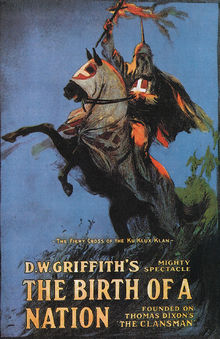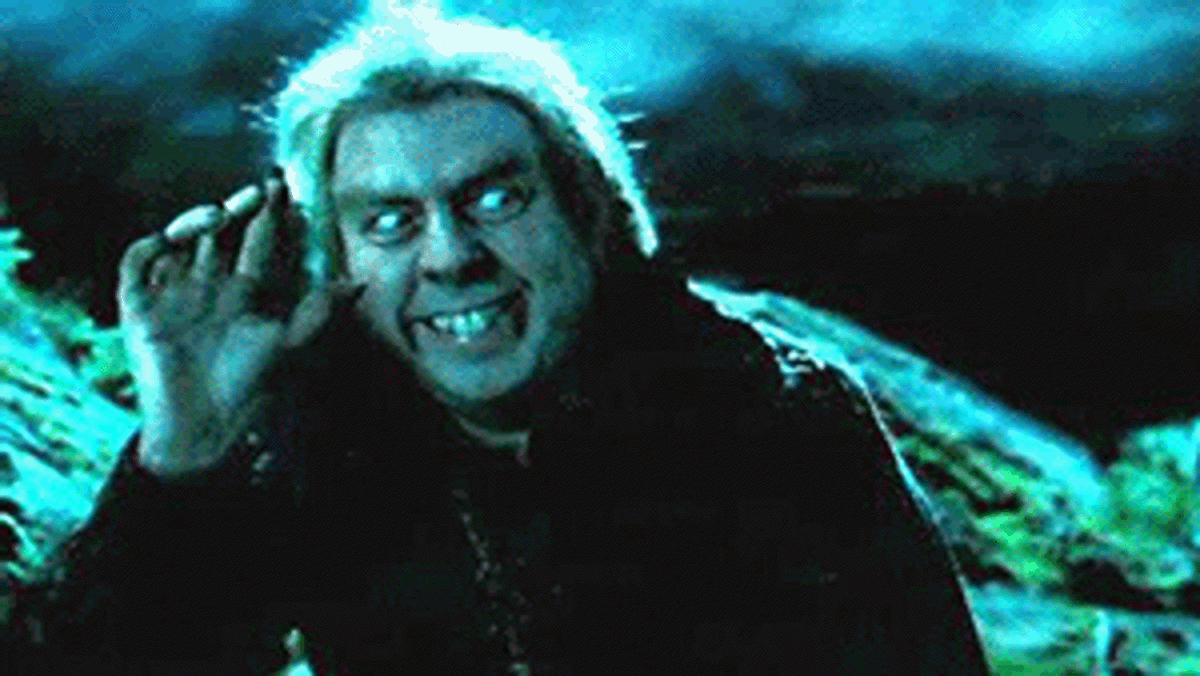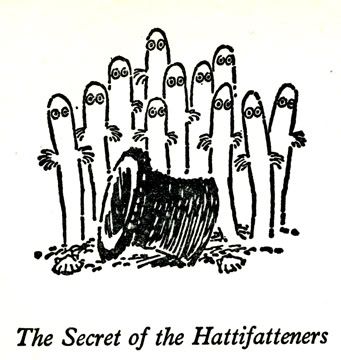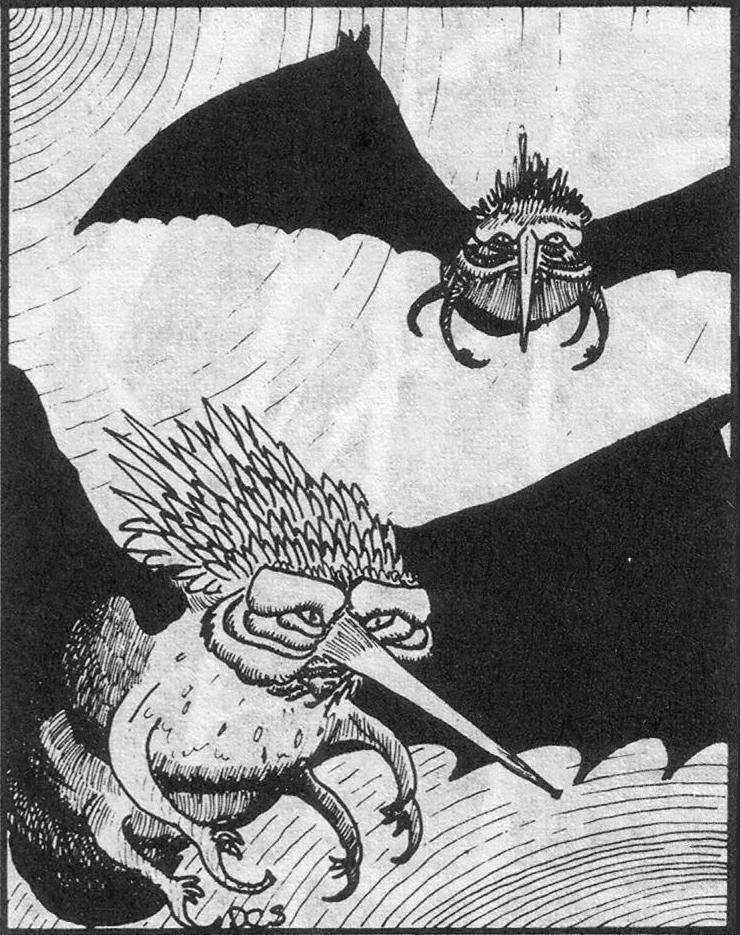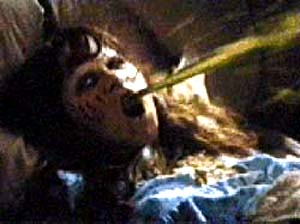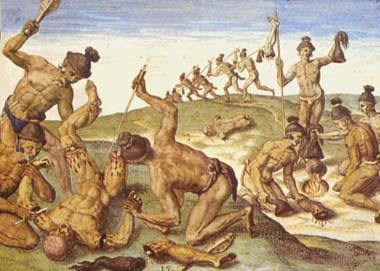Sir Reginald and his brother Bobo, Ogre Ranger and companion (played by Zor)
Freidan Devilsnare, Reverse-Vampire Cleric (Dylan) - Reverse Vampires love garlic, are burned by moonlight, heal people by giving them blood transfusions, etc.
St. HK-47, Robotic Pope (Ian) - agent of the Vatican and devout follower of 'Super Jesus'
Torin the Small, Halfling Body-Part Thief (Shaun)
Eventually joined by JibberJabby, nude Hobgoblin Wizard beset by unpredictable spell effects (Tom)When the last session ended, the PCs had just fought off a horde of vomiting goblins atop a giant chickenfort. They now decide to rest up and interrogate the goblin that they have captured. He explains that the goblins are equally worried by the sudden decomposition of the flesh of the dead god Hyperion. After some cajoling, he also admits that their leader, the now-deceased Haggo, has recently led a mysterious expedition deep into the body of the god. Sir Reginald concludes the interrogation by convincing the goblin to serve him as a dogsbody. This leads to the following conversation:
Zor: "I'll write him on my character sheet. What's his name?"
Me: "I dunno, he's just a random mook. What do you think his name should be?"
(pause)
Dylan: "Hitler."
Me: "Well, that's anachronistic, but I like the idea that goblins would name themselves after famous dictators. So how about his name is Genghis Khan?"
All: "KHAAAAAN!"
Around this time the Four Great Heroes come back into town: Sir Gregory Thorn, Alaric the Archwizard, Gwenna the Priestess and Pelwerthyn the Elf. Appearing briefly in the previous session, they are an extremely bland and generic adventuring party who are destined to be feted and beloved by the populace despite their uselessness, while the bizarre Fantasy Doom Patrol always languish in obscurity.
 |
| look at these fuckers. don't you want to punch them already? |
From here, the situation deteriorates rapidly. The formerly thankful villagers turn into a lynch mob as Torin escapes across the rooftops a la Assassin's Creed. Sir Reginald sends Khan the goblin to pack his bags for a quick getaway. However, Torin has previously warded their room with a scarecrow that is set to scream if anyone besides the PCs tries to get in (this is an item you can buy in chargen, because 4th edition is weird like that.) The scarecrow begins screaming at Khan. Sir Reginald rushes in, followed by the villagers, who see Khan and decide that the PCs must have been in league with the goblins all along! Sir Reginald, his brother Bobo, Khan and the scarecrow all escape by smashing through a wall into the alley below.
Me: "You take 4 falling damage from leaping out a first story window. The angry mob is right behind you."
Zor: "But they're all minions right? So that means they will all die automatically from the fall."
Me: "That's cheating! You can't adhere that strictly to the rules! (pause) Well, ok. The people at the front of the mob don't want to jump out, but the ones behind them are still pushing, so like five people fall out and break their necks."
It hardly needs to be stated that these deaths will soon be remembered as "those slain by the monstrous ogre".
The PCs all escape from the town by various routes. The only one who stands between them and freedom is Sir Gregory Thorn. Bobo tries to throw the screaming scarecrow at Thorn to distract him. A critical hit! "Well... usually you shouldn't be able to damage someone with a scarecrow, but since it's a crit... yeah, ok, the sharp point stabs into his shoulder and he's just stuck there with the scarecrow screaming at him. Forever."
 |
| AAAAAAAAAAAAAAAAAAAAA |
In a maze of ventricles somewhere near the small intestine, they are attacked by a trio of giant tapeworms, pursuing a naked hobgoblin who turns out to be our latecoming 5th PC, JibberJabby. JibberJabby struggles to control his magic, and although the mechanical effects remain mostly the same the exact nature of his spells vary wildly each time they are cast. This was just a vague idea before Tom arrived at the table, but when his character was introduced the players spontaneously wrote up a d20 table for "What weird thing is JibberJabby's magic doing now?"
1.shit
2.wet celery
3.toast
4.potato
5.coins
6.fire
7.wood
8.earth
9.paper
10.moon
11.water
12.sun
13.peyote
14.curry powder
15.wind
16.bleach
17.daggers
18.swarm of bees
19.alcohol
20.chicken!
This table is rolled upon every time JibberJabby casts a spell.
Over the course of the battle, JibberJabby conjures a blast of shit, a flight of origami cranes, and a swarm of tiny winged moons (which almost deal damage to Freidan as well, who as a Reverse Vampire is allergic to moonlight). But the hilarity comes to an end when poor Bobo is dragged down a tunnel by a tapeworm and smited to death by a holy parasite. Bobo is not a PC but a companion (technically a bear by the RAW) so there is no provision for his return.
Saddened and beaten bloody, the party decides to retreat from the dungeon in order to rest and bury their fallen comrade. They retrace their steps to the entrance and rest until the next day. Then they climb the mountain to bury Bobo in the ogre village where he was born.
The ogre village is built around a mysterious pit leading down into the centre of the god body. Bobo's funeral is interrupted by a blazing light that shines forth from the pit. Looking down the hole, the PCs see a bizarre sight: a giant glowing golden baby ascending the shaft towards them.
But that is a story for another session...




